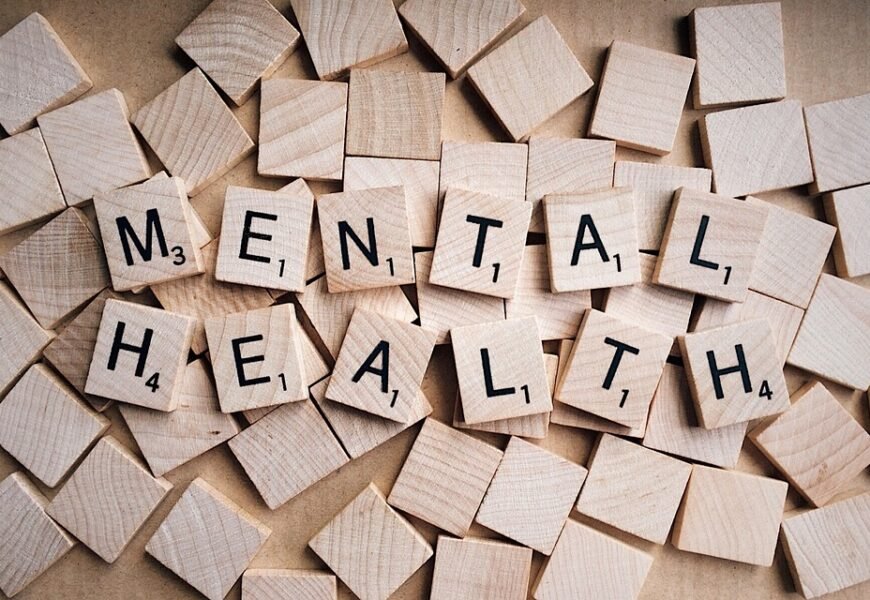Introduction
In today’s fast-paced world, the conversation around mental health is finally breaking through the walls of stigma and isolation. Yet, even as we become more aware of issues like anxiety and depression, many still feel like they’re alone in their struggles. Take Sarah, a 29-year-old marketing executive—a vibrant, social person who seemed to have everything together. Behind the facade of her perfect life, she battled crippling anxiety that came to a head during a recent presentation at work. As her heart raced and her palms turned clammy, she realized she was on the verge of a panic attack. That day marked a turning point, propelling her into the difficult yet necessary journey of identifying and addressing her mental health challenges.
Sarah’s story isn’t unique; many individuals grapple with mental health disorders, often in silence. In this article, we aim to shine a light on some of the most common mental health disorders today, breaking down their complexities and exploring the impact they can have on individuals’ lives. We’ll also provide practical advice and expert tips to help you—or someone you love—navigate the mental health landscape more confidently.
Understanding Common Mental Health Disorders
Anxiety Disorders
Anxiety disorders represent a collection of conditions that include generalized anxiety disorder (GAD), panic disorder, social anxiety disorder, and specific phobias. They often manifest as excessive worry, fear, or apprehension about everyday situations.
Real-Life Example: Mark, a college student, struggled with social anxiety. The thought of attending parties or speaking up in class would send him into spirals of overwhelming anxiety. After speaking with a counselor, he learned that the feelings he experienced were common. Simple coping techniques, like deep-breathing exercises and gradual exposure to social situations, helped Mark rebuild his confidence.
Tips for Managing Anxiety:
-
- Deep Breathing: Practice deep breathing exercises like the 4-7-8 technique to calm your nervous system.
- Journaling: Writing down worries can often help externalize and confront them.
- Exercise: Regular physical activity boosts endorphin levels, which can significantly improve mood.
- Seek Professional Help: Don’t hesitate to reach out to a mental health professional for support; therapy can provide valuable coping strategies.
Depression
Depression affects millions globally and can affect how you feel, think, and handle daily activities. It often presents as persistent sadness, lethargy, or a feeling of hopelessness.
Real-Life Example: Emma, a passionate artist, found herself struggling to get out of bed on most days. She felt lost and unmotivated, a stark contrast to her former vibrant self. After several months of somber days, Emma reached out for help. Therapy sessions supported her exploration of her feelings, and medication helped to stabilize her emotional state.
Tips for Coping with Depression:
-
- Establish a Routine: A structured daily routine can instill a sense of normalcy and provide stability.
- Set Goals: Start with small, achievable goals to provide a sense of accomplishment.
- Reach Out: Stay connected with friends and loved ones; social support is crucial.
- Engage in Activities: Participate in activities that bring you joy, even when motivation is low.
Bipolar Disorder
Bipolar disorder is characterized by extreme mood swings that include emotional highs (mania or hypomania) and lows (depression). This disorder can significantly impact daily functioning and relationships.
Real-Life Example: Alex, a high-achieving business consultant, often celebrated periods of intense productivity followed by deep lows that left him unable to work or engage socially. After receiving a diagnosis, he worked collaboratively with healthcare providers to manage his mood swings through therapy and medication, creating a more balanced life.
Tips for Managing Bipolar Disorder:
-
- Mood Tracking: Keep a journal to track mood changes and triggers; knowledge can empower you.
- Medication Adherence: Work closely with health professionals to find the appropriate medication regimen and adhere to it.
- Educate Yourself: Learn about bipolar disorder to recognize signs of mania and depression early.
- Join Support Groups: Connecting with others who understand your experiences can be immensely helpful.
Post-Traumatic Stress Disorder (PTSD)
PTSD often develops after experiencing or witnessing a traumatic event. Symptoms may include flashbacks, nightmares, and severe anxiety.
Real-Life Example: Laura, a war veteran, returned from deployment feeling disconnected and haunted by flashes of her experiences overseas. It wasn’t until she sought help from a therapist specializing in PTSD that she began to unravel the effects of her trauma on her day-to-day life, integrating her experiences into her narrative healthily.
Tips for Managing PTSD:
-
- Therapy: Seek trauma-focused therapy, such as Cognitive Processing Therapy (CPT).
- Establish Safety: Create a safe space in your home where you can retreat when feeling overwhelmed.
- Mindfulness Techniques: Engage in mindfulness practices to help ground yourself in the moment.
- Educate Supporters: Educate friends and family about your diagnosis to foster understanding.
Obsessive-Compulsive Disorder (OCD)
OCD is marked by obsessive thoughts and compulsive behaviors. Individuals may feel the need to perform rituals to alleviate distress caused by intrusive thoughts.
Real-Life Example: Jake had always been meticulous, but when his rituals began to consume hours of his day, he realized something was amiss. After being diagnosed with OCD, he learned to confront his compulsions, adopting strategies to reduce the compulsive need to act on obsessive thoughts.
Tips for Managing OCD:
-
- Exposure and Response Prevention (ERP): Work with a therapist trained in ERP to gradually resist compulsive behaviors.
- Mindfulness Practices: Engage in mindfulness exercises to learn to observe thoughts rather than react to them.
- Limit Triggers: Identify and reduce exposure to environments or routines that exacerbate compulsions.
- Educate Yourself: Understanding OCD can demystify the disorder and reduce its perceived power.
Deconstructing Stigma
While awareness of mental health issues is increasing, significant stigma persists. Many individuals, like Sarah or Mark, confront silent battles layered with shame and fear of judgment. Understanding the social constructs fueling stigma can empower us to challenge these narratives.
-
- Change the Conversation: Share your own experiences or insights with others to create a dialogue about mental health.
- Advocate for Mental Health: Support mental health initiatives or join community efforts that foster understanding and acceptance.
- Educate Others: Helping friends and family members understand mental illnesses can combat misinformation and stigma.
Expert Tips for Mental Well-being
-
- Language Matters: Choose your words carefully when discussing mental health; avoiding derogatory terms encourages a more positive dialogue.
- Practice Self-Compassion: Be gentle with yourself during difficult times. Remind yourself that struggling doesn’t diminish your worth.
- Create a Support Network: Surround yourself with understanding, encouraging people who uplift and inspire you.
- Develop Healthy Coping Strategies: Identify activities that soothe and uplift you—whether it’s art, nature walks, or yoga—and integrate them into your life regularly.
Taking Action for Mental Health
Mental health awareness is crucial, but how can we take actionable steps to ensure that we nurture our well-being?
-
- Assess Your Feelings: Regularly check in with yourself about your mental and emotional state. Just as you’d monitor physical health, include your mental health in that routine.
- Set Boundaries: Prioritize your mental health by setting boundaries with work, relationships, and technology. Consider implementing “digital detox” periods.
- Practice Gratitude: Begin a gratitude journal where you jot down three things you’re thankful for each day. This practice can shift focus from negative thoughts to positives.
- Learn Mindfulness: Engage in meditation or mindfulness exercises to cultivate present-moment awareness, reduce anxiety, and enhance emotional regulation.
- Seek Professional Help When Needed: Don’t hesitate to consult a mental health professional. Therapy is a viable option to explore feelings, thoughts, and behaviors without judgment.
Conclusion
By breaking the silence surrounding mental health disorders, we begin to dismantle the stigma and build understanding and compassionate support systems. Remember, you are never alone in your journey. Whether you’re grappling with anxiety, depression, or any other mental health struggle, there are paths to healing and self-discovery.
Reflect on the questions below to encourage personal growth and insight:
-
- What is your current understanding of mental health? Have your perceptions changed?
-
- How can you create a more supportive environment for yourself or others struggling with mental health challenges?
-
- What actionable steps can you take today to prioritize your mental wellbeing?
As we continue to foster empathy and understanding, we pave the way for a society where mental health is no longer taboo but a vital component of holistic well-being. Ultimately, your mental health journey is uniquely yours, and taking steps towards understanding can inspire others to do the same. So let’s continue this conversation—acknowledge the struggles, celebrate the triumphs, and pave a path forward that is understanding, supportive, and free from stigma.














